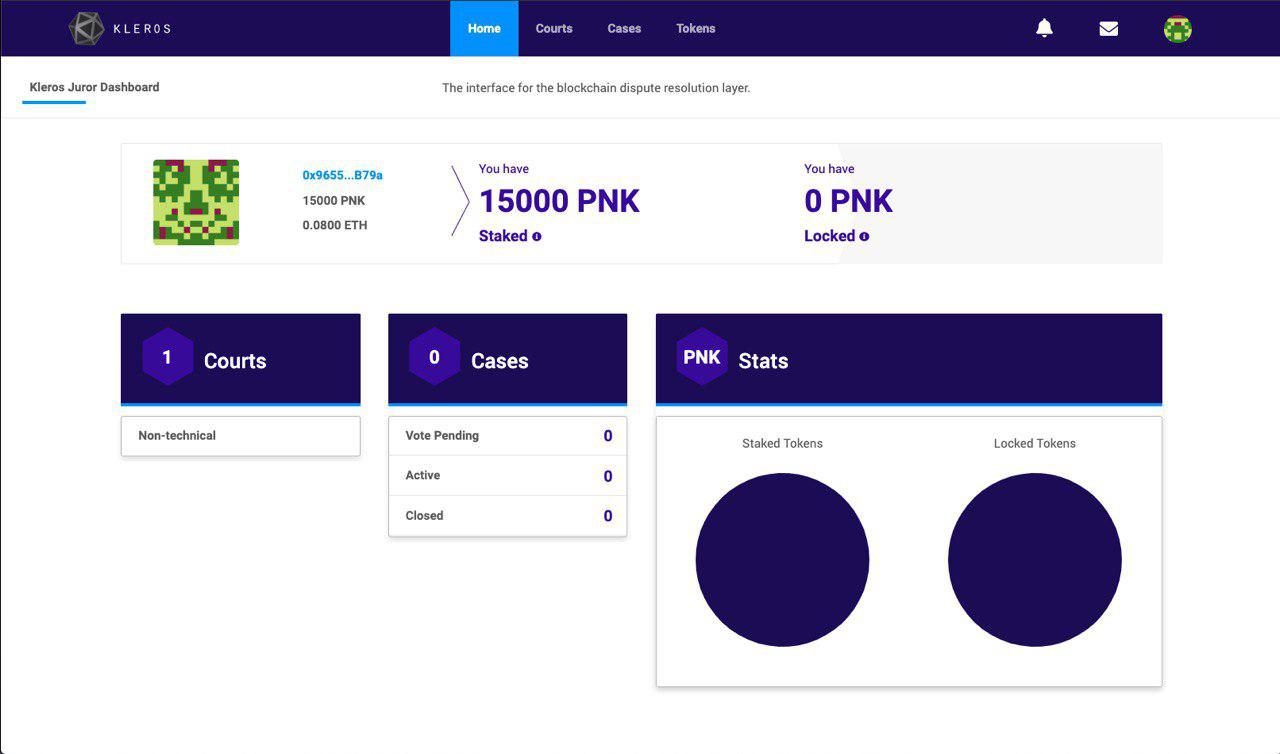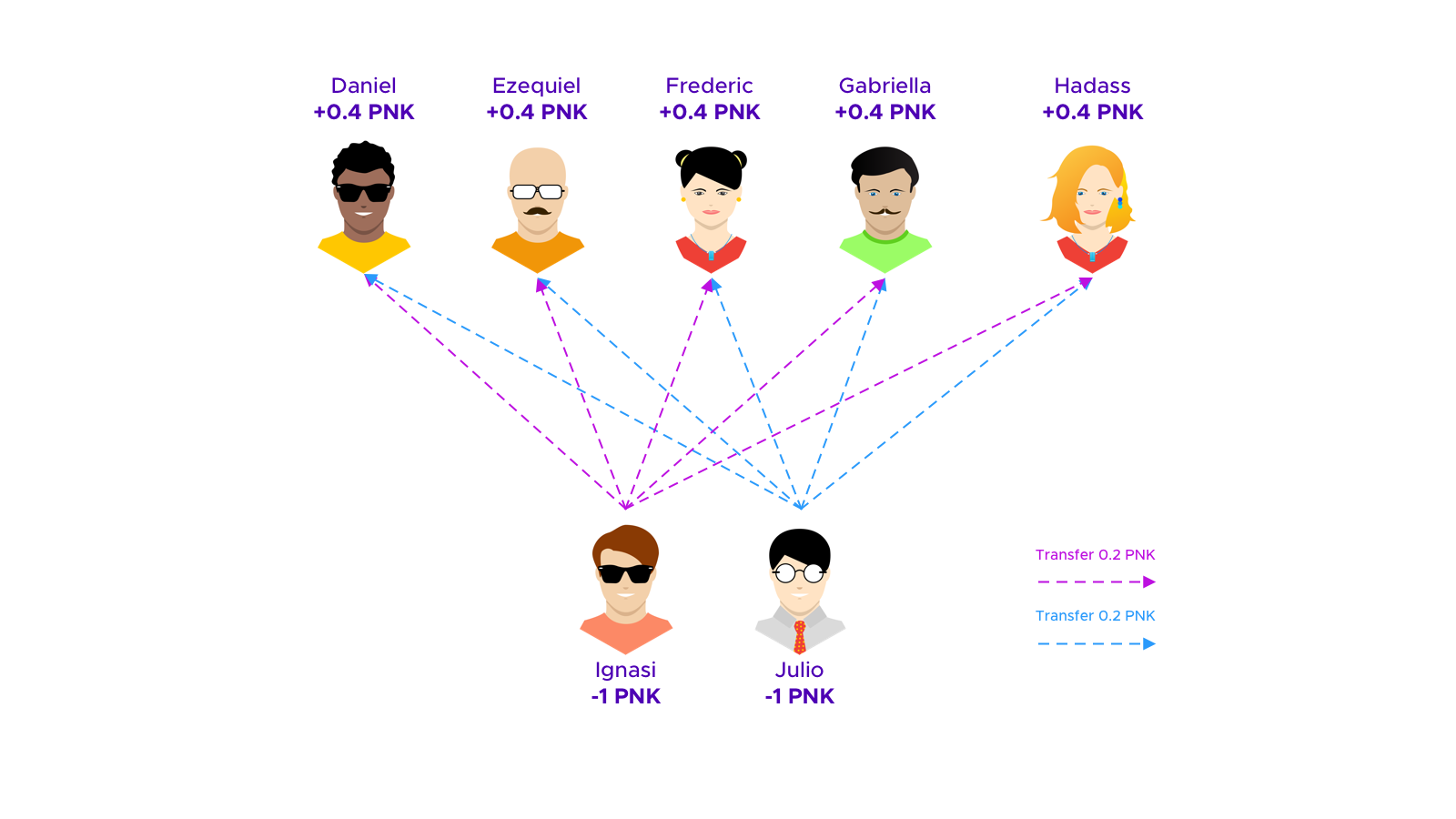Kleros is a new blockchain-based arbitration platform that can be used to resolve disputes in the global, digital, decentralized economy which can’t be easily and affordably solved by state courts or other existing dispute resolution methods.
The applications of Kleros’ arbitration system extend far and wide, including insurance, crowdfunding, e-commerce, and other escrow use cases such as freelancer-client contracts.
We’ve written more on Kleros’ fast, secure, and affordable arbitration platform in a past article, How Kleros Can Disrupt the Legal Services Industry. In this article, we’re going to focus on the other side of the platform: crowdsourced arbitrators.
Specifically, we’re going to explain all of the opportunities to actually make money by participating in the Kleros ecosystem.
Let’s get to it!
How to Earn as a Juror

Decentralization is only possible through well-designed economic incentives. In other words, if you want a group of independent individuals to act honestly and do what’s best for the collective system, the only way to achieve that outcome in a decentralized system is to make honesty profitable and dishonestly costly.
In the case of Kleros’ arbitration system, the basic design goal was to coordinate each individual arbitrator (or “juror”) with other jurors who are assigned to resolve a given case. The catch is that the jurors either aren’t able to effectively communicate with each other or can’t trust that the others are being truthful when they do communicate.
To solve this problem, Kleros developed an incentive structure that makes it in the best interest of each juror to vote for whichever resolution they believe the other jurors will vote for. The rules of the system reward jurors who vote with the majority on the outcome of a contract dispute and penalize those who vote in the minority.
Kleros describes this process as “voting coherently”, which is akin to honest voting with a financial incentive.
By ensuring that the jurors can’t know with any certainty how other jurors will vote, it follows that rational jurors will make honest judgements on each case to give themselves the greatest odds of earning rewards and avoiding penalties.
Furthermore, Kleros has developed an appeals system which is structured such that even if an initial judgement is incorrect, any party can stake another round of arbitration fees in order to have the dispute ruled on again. In the case that a decision is overturned in appeals, the original dishonest voters are penalized further. This gives jurors every reason to make honest rulings in each case they participate in.
If you want to earn money as a juror in Kleros’ system, you need only follow these steps:
- Select a court or courts that you believe you can competently resolve disputes in. It’s important that you feel you are qualified to rule on cases in that court because voting with the majority of other qualified jurors is how you ultimately earn payouts.
- Apply to serve as a juror in specific cases by staking the native token of Kleros’ platform, pinakion (PNK). Jurors are randomly selected for each case from the pool of stakers, with the probability of an individual being selected being proportional to the amount of staked tokens they’ve staked relative to the total.
- Review the case, asses the evidence, then commit your vote(s). Once committed, votes cannot be changed, but they remain hidden from the other jurors until the vote is over so that jurors aren’t influenced by the votes of their peers.
- Reveal your vote. Once the vote is over, you must reveal your vote so that a final tally can be determined. To incentivize jurors to always reveal their votes, failure to do so results in a penalty 2x larger than the penalty for voting in the minority on a case.
- Collect your portion of the arbitration fees. Once the case is resolved, you’ll be awarded a portion of the arbitration fees according to the fraction of total votes you made. For example, if there are 9 jurors who each vote once, you would receive 1/9th of the arbitration fees.
- Collect your portion of the PNK token redistribution (if applicable). In the event that you vote with the majority on a case but the vote was split or somebody failed to reveal their vote, you’ll receive a portion of the staked tokens from each juror who didn’t vote with the coherent majority.
Note on steps 3 and 4: Commit and reveal haven’t yet been implemented, so for the time being votes are going directly on the public blockchain where other jurors can see them. It will be included in an upcoming update.
The figure below from the Kleros whitepaper shows how tokens would be distributed in a case which Bob pays the arbitration fees, two jurors vote in the minority, and 5 jurors vote in the majority.

Submit a Token to the Token Curated Registry (TCR)
Getting a token listed on a cryptocurrency exchange has typically been a highly centralized process, as many exchanges charge exorbitant listing fees and make projects go through endless red tape for the chance to gain liquidity for their coin or token.
Kleros has developed a solution to decentralize the token listing process on crypto exchanges, with Ethfinex (a spinoff of Bitfinex) being the first exchange to implement the solution.
By building this decentralized solution, Kleros has also created another way for knowledgable cryptocurrency enthusiasts to support the ecosystem and profit in the process.
The steps for making money by submitting a token to the Token Curated Registry (TCR) are:
- Carefully review the listing guidelines to make sure that the token you plan to submit matches the criteria.
- If you believe the token qualifies, submit it to the TCR and wait 2 days for the registration to be approved.
- Once approved, add the Ethfinex Compliant Badge to your token and wait 5 days for verification.
- Wait for your token to be put forward to the Nectar (NEC) community for vote. 12 Ethfinex Compliant tokens will be put forward each month.
- Take part in the community vote. Tokens that finish in the top three spots in the community vote each month will be listed to Ethfinex and Bitfinex.
- Collect your reward of PNK tokens! If your token submission is accepted prior to the deadline on June 30th at 23:59 UTC, you’ll earn a share of the 1 million PNK tokens being given away. The amount you earn is calculated according to the portion of total accepted tokens you submit. For example, if you submit 10% of the accepted tokens you’ll earn 100k PNK. (See more details here.)
With liquidity being such a huge necessity for any blockchain project to succeed, becoming an expert advisor to on decentralized token listings could become a whole new business model of its own.
Earn Big By Challenging Incorrect Token Submissions
The third way to make money as a participant in the Kleros ecosystem is possibly the most profitable one as well.
We’ve already discussed the economic incentive that exists to encourage people to submit qualifying tokens to the TCR, now we’re going to explain the incentive that exists to discourage people from casually submitting any random token without doing their due diligence to make sure it meets the criteria.
You see, every token submission requires the submitter to pay a 0.725 ETH deposit / stake fee.
In the event that the token is accepted and added to the list for voting, that deposit is returned in full to the submitter.
However, if you monitor the submissions and find one which doesn’t meet the criteria, you can ‘Challenge’ the submission. This will send the token application to trial in the decentralized arbitration system, and Kleros jurors will vote on the validity of the submission.
Supposing you are correct in challenging a submission, the submitter’s deposit will be used to pay the jurors who resolved the case and the remainder will be given to you. The exact amount will depend on the specific trial, but needless to say it can be well worth your effort to challenge a submission if you’re confident it’s incorrect.
For instance, challengers in a recent Ethfinex badge case managed to earn a hefty sum of 18 ETH total for correctly challenging improper badge requests through Kleros.
With that being said, the high potential reward doesn’t come without risk. To ensure that nobody has an incentive to challenge submissions without being confident that they are incorrect, Kleros requires challengers to submit a 0.39 ETH deposit of their own.
If your challenge is correct, the deposit will be returned in full along with your earnings. In the event that your challenge is ruled incorrect, however, your deposit will be used to pay the arbitration fees.
Conclusion
Kleros has thoughtfully designed a system of incentives that encourage participation and honesty throughout their ecosystem.
If you’re looking for ways to make money from your laptop and on your own schedule while contributing to a decentralized solution that can improve the cost, efficiency, and fairness of arbitration anywhere in the world, look no further than Kleros.

